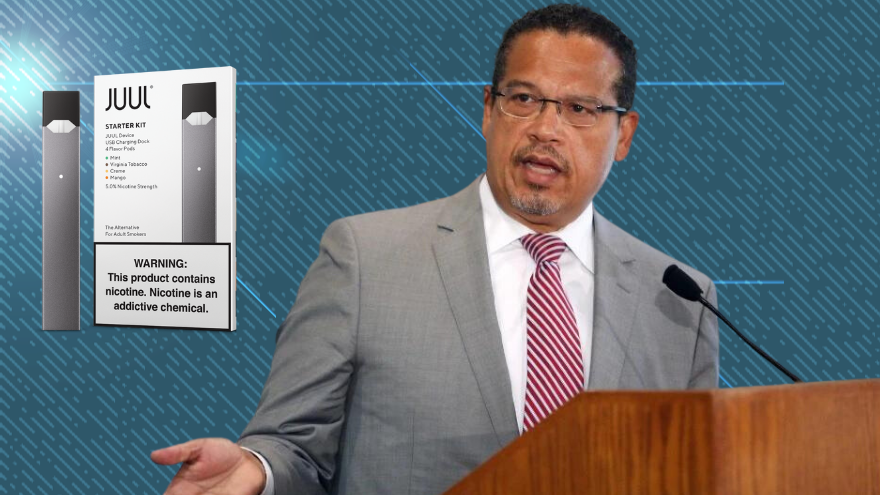Minnesota and Juul will face off in court over allegations that the e-cigarette company intentionally targeted young Americans and promoted nicotine addiction.
Minnesota Attorney General Keith Ellison is seeking $100 million in damages from Juul and the Altria Group, a tobacco company that controlled a minority stake in the company.
The trial began on March 28 and will be overseen by Hennepin County District Judge Laurie Miller. The 12-person jury – eight women and four men – heard opening comments from the state.
“They baited, deceived, and addicted a whole new generation of kids after Minnesotans slashed youth smoking rates down to the lowest level in a generation,” Ellison said, per AP News. “Now, big tobacco is back with a new name but the same game. Juul wiped out the work of our state with their slick products, clever ads, and attractive flavors.”
Ellison’s was the first state prosecutor’s office in the country to sue Juul. His team argued the company was a “public nuisance” because it created societal harms including environmental hazards and a public health epidemic.
Juul has already settled 39 lawsuits brought by other states and American territories.
Ellison told the jury that Juul deceptively advertised to minors and intentionally used high concentrations of nicotine to foster addiction among their young customers. The attorney general claimed Juul “purposely made their products small and sleek to make detection by adults difficult,” “added flavors that would appeal to young people,” and “used a marketing campaign they knew would appeal to teens.”
“Young people are innocent, and they want to explore,” Ellison said, per News 4 Jax. “Kids are attracted to what is shiny, slick, cool — and that is exactly who Juul and Altria were targeting and preying upon.”
The state claims Juul tried to entice “cool kids” and used social media influencers and celebrities as “pushers” for their e-cigarettes.
Juul has argued that Minnesota has successfully settled with other tobacco companies in the past – securing billions of dollars as a result – and has not funded any statewide anti-smoking efforts. The company said Minnesota turned down the approximately $440 million settlement offered to other states to assist with anti-smoking efforts and insisted on going to trial.
“The State collected over $840 million in tobacco-related settlements and taxes in 2017, and another $750 million in 2018,” said Juul in court documents filed in November. “Yet both years, the State spent less than 1% of that money on prevention and cessation efforts. In other words, the State consistently collected a hundred times as much in tobacco taxes and settlement fees than it spent on tobacco-control measures.”
In September of 2022, Connecticut Attorney General William Tong announced his coalition of 35 states had reached a $438.5 million settlement with Juul.
“They relentlessly marketed vaping products to underage youth, manipulated their chemical composition to be palatable to inexperienced users, employed an inadequate age verification process, and misled consumers about the nicotine content and addictiveness of its products,” Tong said in a press release. “The full public health ramifications of this misconduct are yet unknown.”
The trial is expected to last about three weeks.
